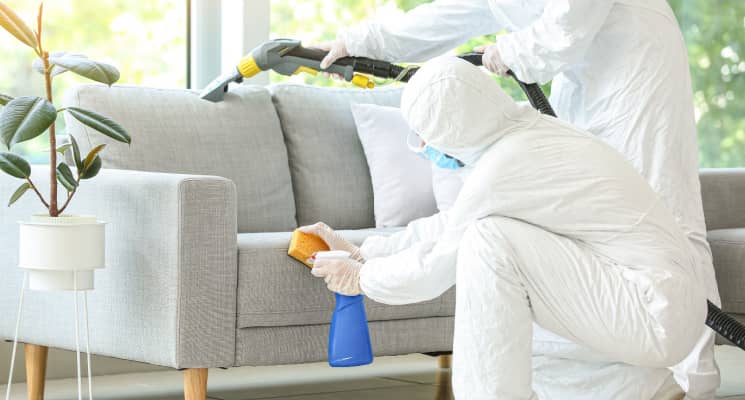When it comes to maintaining a healthy home environment, a question that often arises is how often should pest control be done? Pest control is crucial for safeguarding your living space from unwanted insects and rodents that can cause serious health risks and property damage. Understanding the frequency of pest control treatments is essential for proactive maintenance rather than reactive measures.
This article aims to provide you with several informative insights that will help you answer the question of pest control frequency effectively. We will discuss the factors that determine how often you should consider scheduling pest control services, along with tips to enhance your homes pest defense throughout the year.

Understanding the Importance of Pest Control
Pest control is not just about eliminating pests; it plays a significant role in protecting your health and well-being. Pests like rodents, termites, and cockroaches can carry diseases, damage property, and create an unhygienic environment. Investing time and resources in a pest control plan can save you from costly repairs and health issues down the line.

Factors Affecting Pest Control Frequency
Several factors influence the frequency of pest control treatments. Here are some key elements to consider:
1. Type of Pest
Different pests require different approaches. For example, cockroaches might require more frequent treatments due to their rapid reproduction rates, while termite treatments might only be needed once a year. If you want to learn more about how long to wait after treatment, this link will provide additional insights.
2. Level of Infestation
If you are dealing with a significant pest issue, more frequent treatments may be necessary. Engaging with professional pest control services is critical for assessing the problem and determining a treatment plan that fits your situation.
3. Seasonality
Pest activity can vary with the seasons. For instance, rodents may seek shelter during colder months, necessitating preventative measures before their invasion. Similarly, termites are more active in warm months when humidity rises. Knowing when specific pests are likely to invade your home can help in timely interventions.
4. Location and Environment
Your geographical location can significantly impact pest control frequency. Areas prone to specific pests might require regular inspections and treatments. For advice on choosing a pest control service tailored to your location, refer to this useful resource from the EPA.

Recommended Pest Control Schedule
Understanding the recommended schedule for pest control can help you better plan your home maintenance. Heres a general guideline:
1. Quarterly Treatments
For most homes, pest control treatments should be scheduled every three months to keep unwanted pests at bay. This is particularly important for homes in warmer climates with higher pest activity.
2. Bi-Annual or Annual Inspections
Along with quarterly treatments, ensure you schedule a thorough inspection of your property at least once or twice a year. This approach will help catch any potential issues early before they escalate into major infestations.
3. Customized Treatment Plans
Homeowners can benefit from customized pest control solutions tailored to specific needs. Getting a professional assessment may reveal the best frequency based on your unique circumstances.

Tips for Preventing Pest Infestations
Aside from hiring a professional, several preventive measures can help keep pests away:
1. Maintain Cleanliness
Regular cleaning reduces food sources for pests. Ensure you clean spills immediately and store food in airtight containers.
2. Seal Entry Points
Inspect your home for any cracks or openings and seal them. Pests often enter through small gaps.
3. Manage Landscaping
Keep your garden tidy, and avoid overwatering, as stagnant water can attract pests. Consider natural pest deterrents such as hedge apples to enhance your defense.
Consultation with Professionals
Consulting pest control professionals can seriously benefit your pest management strategy. They can evaluate the specific characteristics of your residence and give tailored advice on the frequency of treatments necessary.
FAQs
1. How often should I have pest control done in my home?
It generally depends on the type of pests you have and the season. Most recommendations suggest quarterly treatments for common household pests.
2. Are there natural pest control methods?
Yes, there are various natural methods to deter pests, such as essential oils, diatomaceous earth, and some flowering plants. For a list of flowers that work as natural pest control, check this link.
3. What are the signs that I need pest control?
Signs include droppings, nests, or signs of damage to furniture and walls. Increased sightings of pests is also a clear indicator that you need pest control services.
As an Amazon Associate, I earn from qualifying purchases.
